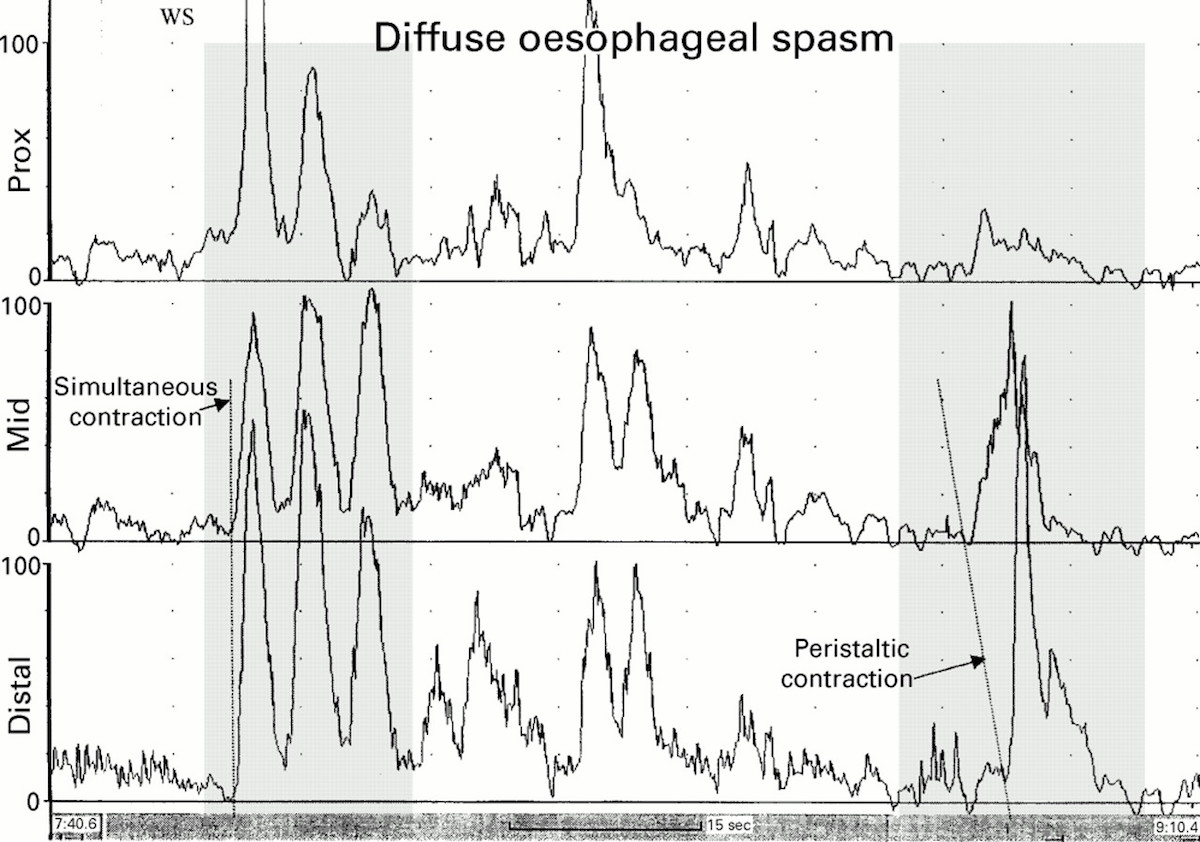2. Esophageal Motility Disorders

A less common culprit are esophageal motility disorders such as diffuse esophageal spasm (DES), nutcracker esophagus, and achalasia. Those suffering from DES experience irregular and uncoordinated esophageal contractions, which can sometimes be powerful and those with nutcracker esophagus experience coordinated and powerful esophageal contractions.
Meanwhile those with achalasia do not have any esophageal contractions at all as well as an oddly increased tone of the LES (the lower esophageal sphincter). This occurs due to nerve loss.
Each of the above esophageal motility disorders can be treated by a variety of methods that all target the LES including: nitrates and calcium channel blockers that are effective in relaxing the LES; botulinum injections which also relaxes the LES but by decreasing the production of the muscle neurotransmitter acetylcholine; balloon dilation of a narrow esophagus, or in more severe cases, myotomy (a surgery in which the LES is cut).
More from Things Health
-
Warning Signs That You Might Have Heart Issues
Heart disease has both genetic and environmental components, as it tends to run in families but can also be impacted by your lifestyle choices such…
-
10 Common Symptoms of Early Stage Cancer
Due to technological advances over the past 50 years, huge progress has been made when it comes to the fight against cancer. However, there is…
-
10 Causes of Leg Cramps – and How to Stop Them
Although they are usually harmless and actually quite common, leg cramps can be both uncomfortable and painful. In this article, we provide an overview of…
-
10 Common Symptoms of Having an Anxiety Disorder
What is normal? Sometimes it is difficult to determine when getting nervous or anxious is a normal feeling, and when you might have an anxiety…
-
Visual Signs of Poor Health That Should Not Be Ignored
We often think that being diagnosed with an illness such as diabetes, heart disease, stroke or cancer as something that happens out of the blue.…






